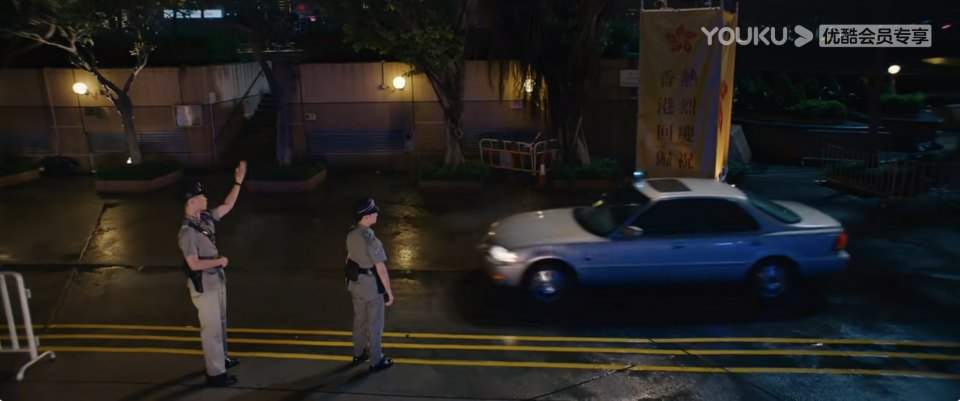My People, My Country 2019

Experience seven pivotal moments that shaped the birth of the People's Republic of China. This stirring historical drama illuminates key events and sacrifices made during this transformative period, revealing the enduring spirit and resilience of a nation.
Does My People, My Country have end credit scenes?
No!
My People, My Country does not have end credit scenes.
Actors
Meet the cast of My People, My Country and learn about the talented actors who brought the characters to life. Explore their roles and career highlights.
Links
Explore where to watch My People, My Country online. Find reviews, ratings, and detailed movie information on other platforms like Metacritic, Rotten Tomatoes, IMDb or TMDb
Ratings
Discover how My People, My Country is rated on popular platforms like IMDb, Metacritic, and TMDb. Explore audience and critic scores to see how this movie ranks among the best.

6.3 /10
IMDb Rating

68
%
User Score

3.0
From 1 fan rating
Movie Quiz
Challenge your knowledge of My People, My Country with an engaging quiz. Test your memory of the movie’s characters, plot twists, and unforgettable moments.
My People, My Country Quiz: Test your knowledge on the narratives and characters from the film 'My People, My Country'.
Who plays the character Lin Zhiyuan in 'The Eve' segment?
Plot Summary
Get the full story of My People, My Country with a detailed plot summary. Dive into its themes, characters, and the twists that make it a must-watch.
The cinematic journey crafted by Guan Hu in The Eve (前夜) begins with Lin Zhiyuan, an engineer racing against time to perfect a groundbreaking flag-raising mechanism for the founding ceremony of the People’s Republic of China. As the hours dwindle, Zhiyuan diligently searches the neighborhood for vital resources, passionately rallying community support and finally installing the mechanism just as dawn breaks, mere hours before the monumental event. This poignant introduction lays the groundwork for a film that spans decades, intertwining narratives of devotion, perseverance, and national pride.
Transitioning to Passing By (相遇), directed by Zhang Yibai, the story transports us back to the tumultuous 1960s. Here, Gao Yuan, portrayed by Zhang Yi, is a scientist embroiled in the race to develop China’s first atomic bomb. Torn between his obligations and his personal desires, his life is shaken when a workplace radiation mishap leads to a furlough. This unexpected time off reunites him with a long-lost love during a bus ride, but their heartfelt encounter is abruptly disrupted by the jubilant sounds of a parade celebrating China’s successful atomic test. As years slip by, Yuan’s life becomes a poignant tapestry of mixed emotions and cherished memories.
In The Champion (夺冠), directed by Xu Zheng, we are whisked away to 1984 Shanghai, where young Dong Dong, portrayed by Han Haolin, faces a heart-wrenching dilemma: he must forego the chance to say goodbye to his crush to help the neighborhood celebrate the Chinese women’s national volleyball team as they triumphantly win the Olympic gold medal. This stirring tale of youthful selflessness and shared joy acts as a heartfelt tribute to the strength of community bonds.
The narrative flows into Going Home (回归), directed by Xue Xiaolu, chronicling the intricate preparations for Hong Kong’s transition from British rule to China in 1997. Local police and members of the Chinese executive delegation join forces to foster a smooth changeover, culminating in a moving reference to the notorious 12-second silence that occurred between the British and Chinese anthems during the historic ceremony.
Ning Hao’s Hello Beijing (北京你好) whisks audiences to 2008, where a benevolent taxi driver makes a selfless decision to gift a coveted ticket to the opening ceremony of the Beijing Olympics to a young boy from the Sichuan earthquake zone who had attempted to snatch it. This story of redemption and altruism beautifully underscores the resilience of the human spirit.
In The Guiding Star (白昼流星), directed by Chen Kaige, we witness a tale of two homeless brothers who, against all odds, experience the exhilarating landing of the Shenzhou 11 crewed spacecraft on November 18, 2016. This significant event transcends their challenging lives, evoking a profound sense of belonging and collective hope.
Lastly, One for All (护航), helmed by Wen Muye, takes us back to 1945, where the exemplary female fighter jet pilot Lü Xiaoran, alongside her fellow aviators, orchestrates an impeccable aerial display at the Military Parade commemorating the 70th Anniversary of the Victory in the Second Sino-Japanese War. This inspiring narrative of unity and resilience stands as a powerful tribute to the unwavering spirit of those who defend their homeland.
Videos
See the latest videos related to My People, My Country. Explore trailers, interviews, and behind-the-scenes content that give you a deeper look into the film.
Movie Cars
Explore the iconic cars featured in My People, My Country. Discover the vehicles that played a role in the movie, their details, and their significance.
Keywords
Discover the keywords that describe the themes and topics of the movie. Explore the keywords that define the essence of the film.
Featured on this page

What's After the Movie?
Not sure whether to stay after the credits? Find out!
Check out our other apps:
Actors
Companies
Latest Movies
© 2025 What's After the Movie. All rights reserved.




























